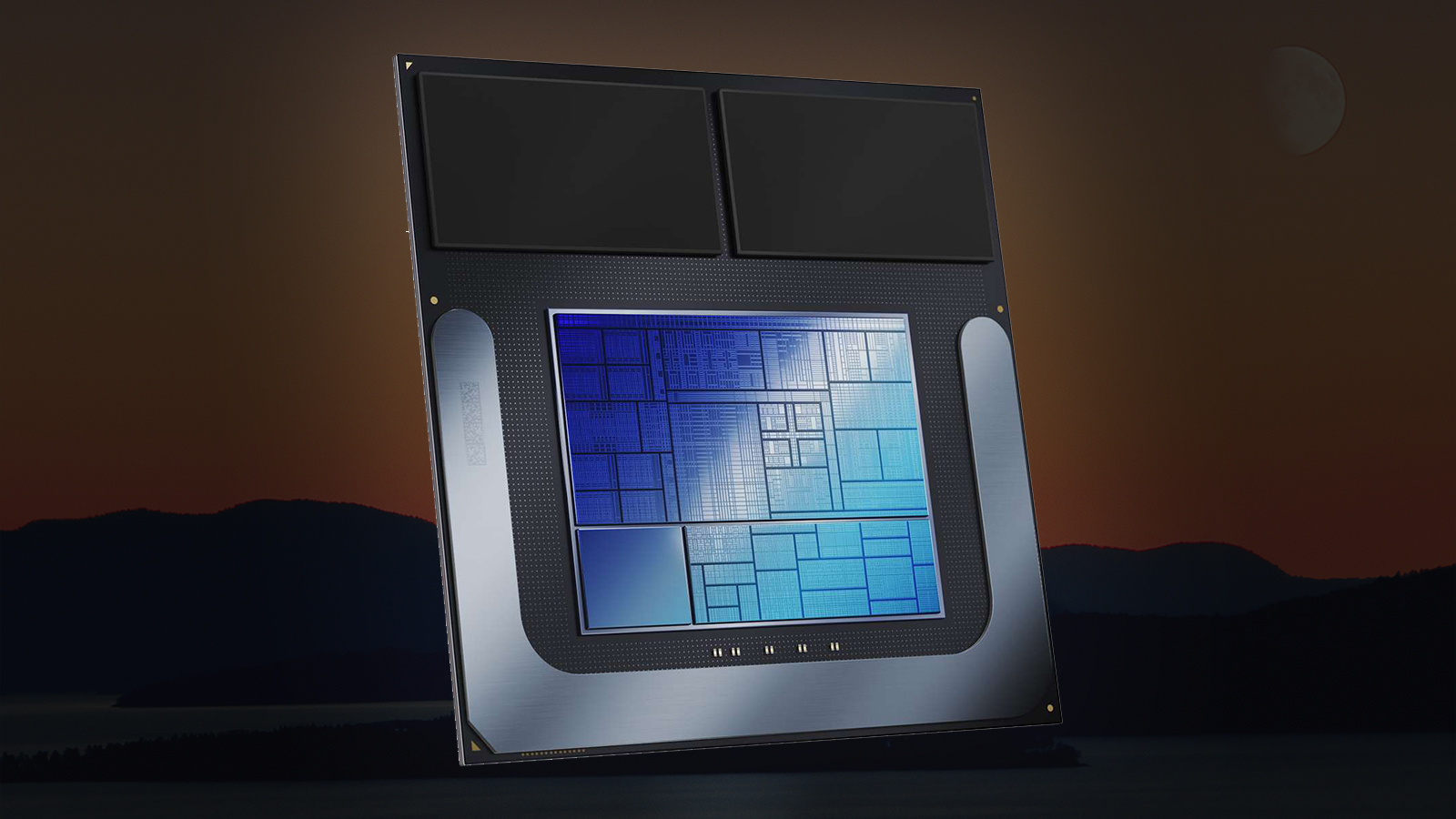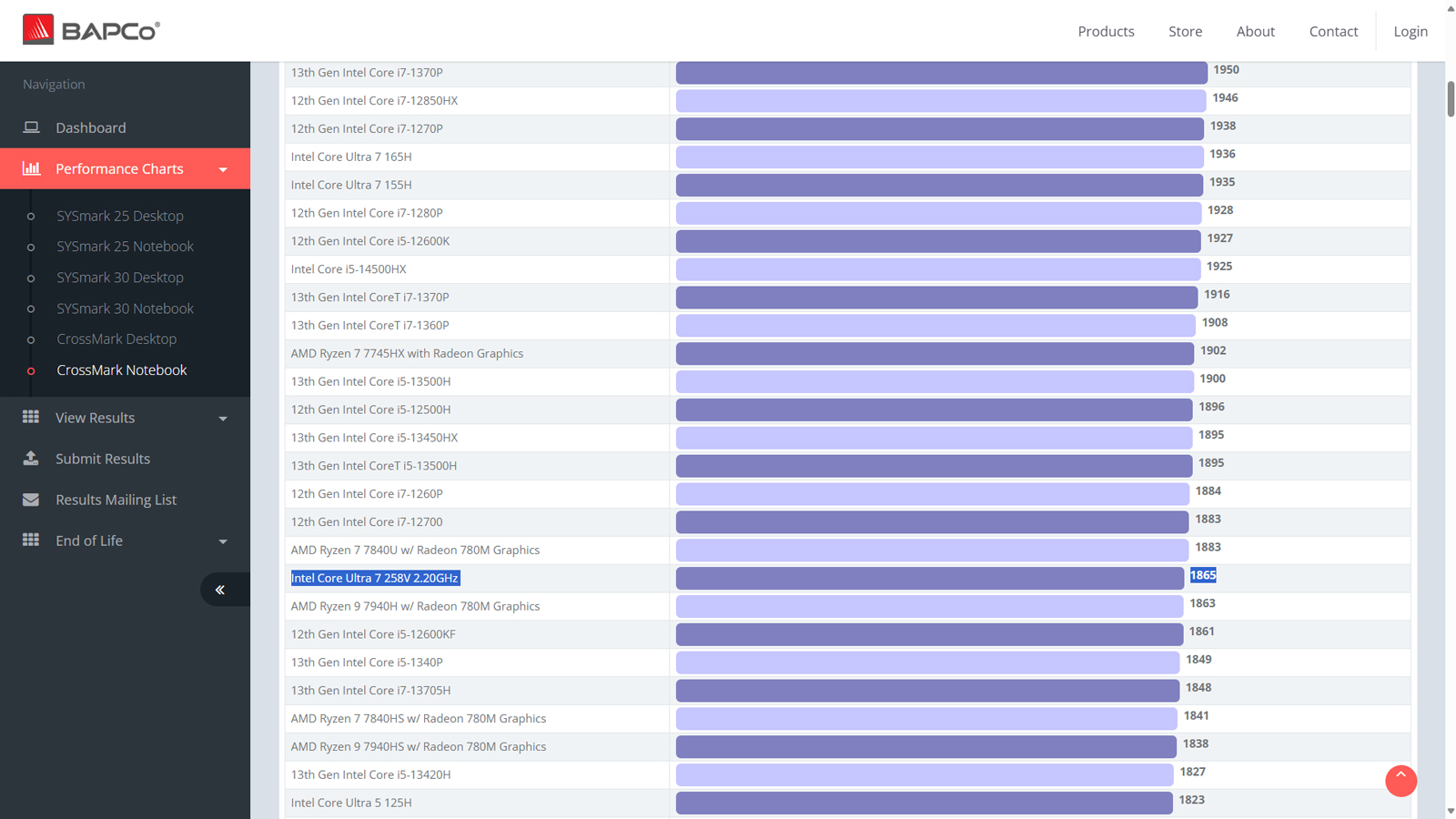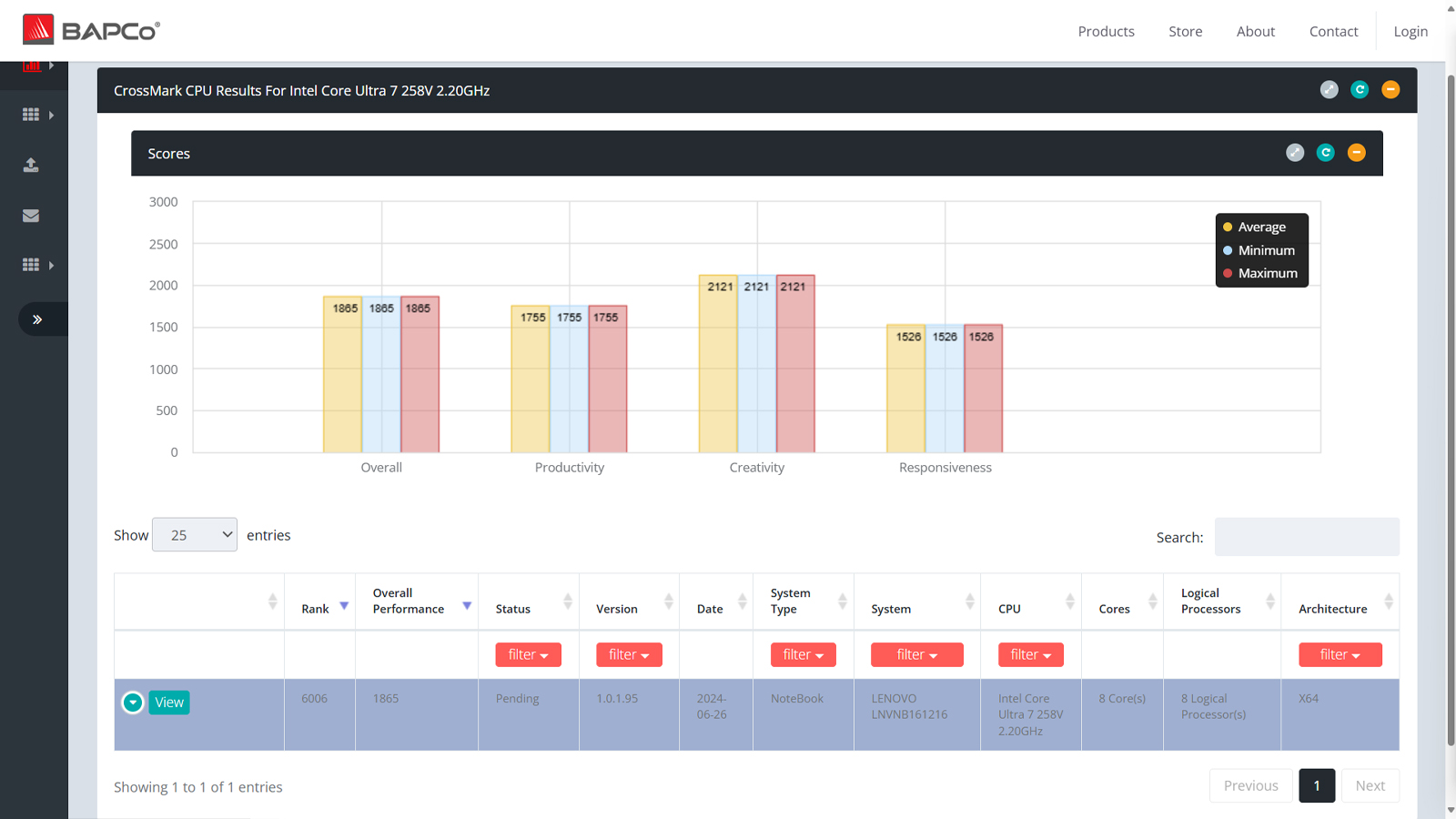
Benchmarks for Intel’s next-generation Lunar Lake chips surfaced on BAPCo’s laptop CPU charts, with the results for the 'Core Ultra 7 258V 2.20 GHz' besting the Meteor Lake Core Ultra 5 125H and getting similar performance to AMD’s Ryzen 9 and Ryzen 7 7040 'Phonenix' chips. The Intel Core Ultra 200V processors are expected to arrive in September this year, so many laptop makers are testing and finalizing their products. This process includes benchmark testing, and we’ve also seen some results for the same chip appear on the more popular Geekbench benchmark.

The BAPCo test was run using its CrossMark benchmark, a multi-platform testing app that looks at overall system performance based on real-world usage patterns similar to how actual users drive their PCs on a day-to-day basis. Leaked specs show a P-Core Boost Clock of 4.8 GHz and Base Clock of 2.2 GHz, while its E-Core Boost Clock speed is 3.7 GHz.
However, we should note that the 258V is rated for a base TDP of 17W and a max turbo power of 30W. This is comparable to the ultra-low power Meteor Lake chips, like the Core Ultra 7 164U and Core Ultra 5 134U. So, it makes sense for the chip to be outperformed by its older but higher-powered cousins like the Intel Core Ultra 7 155H and up. Nevertheless, it outperforms the Core Ultra 5 125H, despite the latter being rated for 28 to 115W TDP.

We should also reiterate the known fact that Lunar Lake chips will ditch Hyper-Threading technology to make its chips more power-efficient for thin-and-light laptops. Rumors indicate that the Core Ultra 7 258V will only have four P-Cores and four E-Cores, for a total of eight cores and eight threads. That means it will have fewer cores and threads than the Core Ultra 5 125H, which has four P-Cores (eight threads) and eight E-Cores.
Remember, these are benchmark results of laptops that are still under engineering development. While these numbers are indicative of how the chip could perform, note that actual performance is subject to change, depending on how well the manufacturer optimizes hardware/software for the final product. Furthermore, different laptop models will likely have some minor differences.
If you’re raring to get Intel’s latest and take advantage of Lunar Lake’s IPC gains, you should at least wait for laptop reviews to come out, like our Copilot+ PC launch testing live blog. That way, you know what you’re diving into and can avoid nasty surprises when you boot up your new computer.







